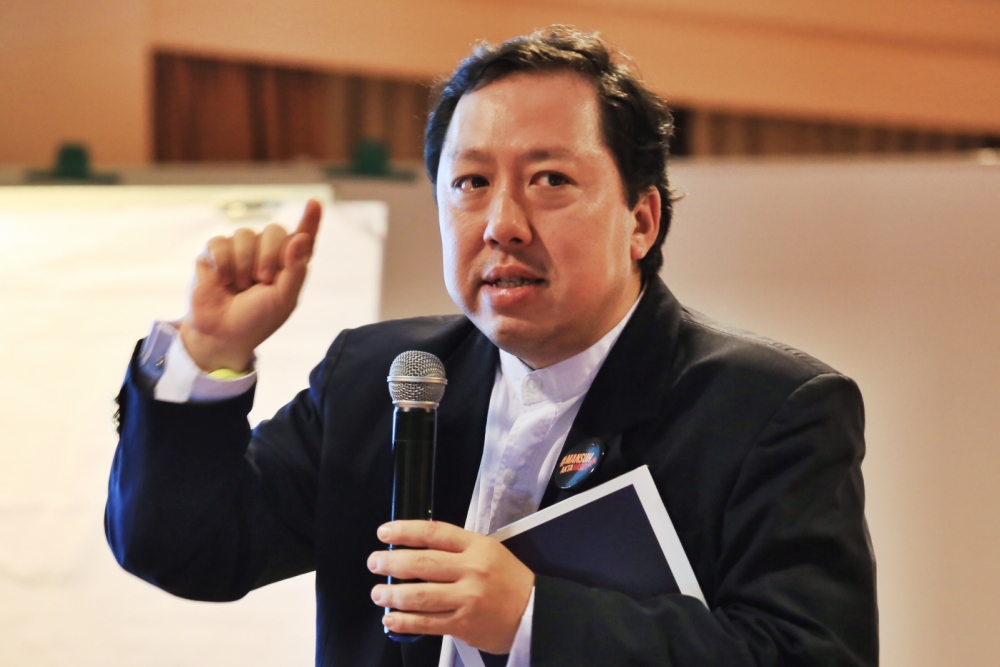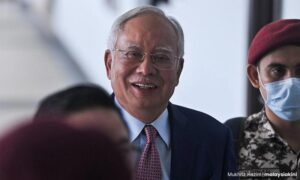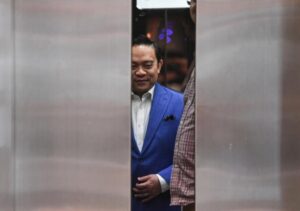By R. Loheswar | Malay Mail
Several legal experts have sounded alarm against recent attempts by Perikatan Nasional (PN) to topple the Anwar administration through defections, highlighting how the anti-party hopping law still has not addressed defections.
They said the ability for MPs to shift allegiances without losing their seats as long as they stay in the same party with the emergence of the so-called “Dubai Move” and “Chow Kit Move” — may seem democratic, but is merely an exploitation of a loophole in the anti-party hopping law towards destabilisation.
“The law was introduced to address one issue: party-hopping. The law does not address the issue of coalition-shifting. To outlaw that would be to undermine the practice of democracy.
“If there is such a thing as the ‘Dubai Move’, it is really an issue of political corruption — how to buy MPs — and should be treated as such,” constitutional lawyer Andrew Khoo told Malay Mail, underscoring the law’s limitations.

Allegations of the Dubai Move aiming to destabilise Prime Minister Datuk Seri Anwar Ibrahim and his federal government coalition surfaced after it was highlighted by Community Communications Department (J-Kom) Deputy Director General Datuk Ismail Yusop.
Ismail implicated PN leaders, including government representatives, in orchestrating the move during their recent holiday in the United Arab Emirates.
Explaining the potential mechanics of the move, Nik Ahmad Kamal Nik Mahmood, a professor at Taylor’s University’s School of Law and Governance, highlighted the significance of MPs remaining with their parties while supporting the move.
He said such a move would result in the government facing a deficit in securing sufficient seats to prevail in a vote of no confidence. Should the Opposition manage to secure 112 out of 222 seats, they could potentially forge a new government.
“If MPs remain with their parties yet support the move to dislodge the unity government by way of the vote of no confidence, the present law does not prevent that, and the MPs do not lose their seats,” said the professor.
In suggesting how to effect the enforcement of the anti-party hopping law, Nik Ahmd Kamal said: “One possible move is for a political party to insert in their constitution a provision that an MP who supports another party in any form of support, expressly or impliedly, will be deemed to have resigned from the party.
“The party will then inform the [Dewan Rakyat] Speaker that there is a vacancy in the particular seat. The Speaker will then have to decide whether the seat has become vacant by virtue of the provisions of the anti-hopping law enunciated in the Federal Constitution.”
Anwar assumed office on November 24, 2022, orchestrating a coalition comprising Pakatan Harapan (PH), Barisan Nasional, Gabungan Parti Sarawak and Gabungan Rakyat Sabah.
As of today, the PH chairman commands over two-thirds support in the Dewan Rakyat, significantly limiting rivals’ opportunities to mount a substantial challenge. Recent events saw five Opposition lawmakers declaring support for the prime minister, a move opponents attribute to political coercion. Anwar vehemently denies these allegations.

Lawyer New Sin Yew also agreed with Khoo and Nik Ahmad Kamal, saying that despite the existence of the law, the loopholes exist — likening the situation to a doughnut with a hole in the middle that is being exploited.
“That hole is not going to prevent the Dubai Move because as long as the MPs stay with their party and don’t resign, they will not lose their seats and they will not lose their seats if they are sacked from their party,” he said.
“To effect the enforcement of this law you have to amend the Constitution once again to define ‘hopping’ as not following the party whip in a confidence motion or by crossing the floor, even if the MP or state assemblyman does not leave his or her political party.
“Or you introduce a recall petition and let voters decide whether they want to keep the MP when the MP crosses the floor or goes against the party whip in a confidence motion,” he added.
The stability of Anwar’s government over the past year can be partly attributed to the anti-party hopping law. This legislation prevented representatives from switching allegiances during campaigning, considering the absence of a single party capable of commanding a majority in Parliament.
The anti-party hopping law played a pivotal role in maintaining the cohesion of the coalition government formed under Anwar’s leadership. Outlined in Article 49A of the Federal Constitution and the Eighth Schedule, became effective on October 5, 2022.
On Wednesday, Kedah Menteri Besar Datuk Seri Muhammad Sanusi Md Nor confirmed that the federal opposition is plotting to topple the current federal government, but said it should be called the “Chow Kit Move” instead of the “Dubai Move”.
Sanusi reportedly said he believes the name “Dubai Move” was just a dummy or decoy as those allegedly plotting to topple the federal government had visited Dubai, but highlighted that many people go to the city in the United Arab Emirates.



